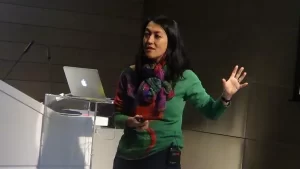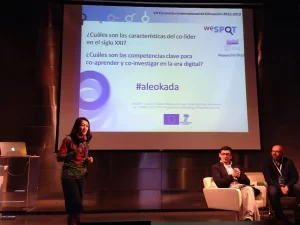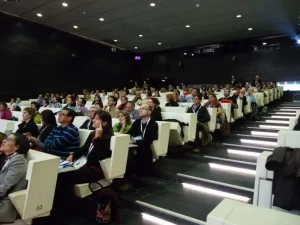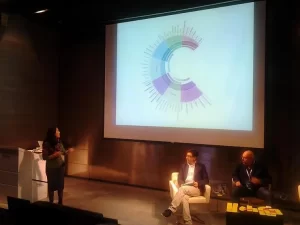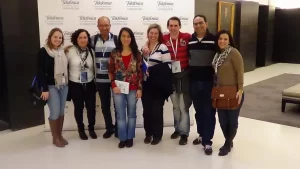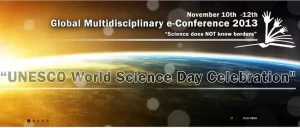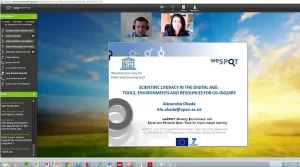Alexandra Okada, Thursday 21 November 2013
The 7th International Conference on Education (from April 2012 – November 2013), organised by Fundación Telefónica, is the 1st Massive Open Event on 21st Century Education. It brings together symposiums in many countries as well as a virtual network environment (Encuentro.Educared.org) for large-scale discussion.
Ale Okada was a keynote at the final event on the 12-13th November in Madrid with an audience of more than 700. Okada presented “Key competences for co-learning and co-inquiry in the digital age,” describing a case study about Telefonica’s Conference Portal (Encuentro.Educared.org) and weSPOT – a working environment with social, personal, and open technologies for inquiry-based learning (wespot.kmi.open.ac.uk). She also facilitated the closing web conference about “Key Competences for co-learning in open massive environments and Augmented Reality in Education, yesterday, 20th of November.
More than 50,000 people registered on Telefonica’s portal, including teachers, parents, head teachers, students, and educators. 5,000 active participants from South and Central America and Spain interacted in discussion forums, chats, web conferences, and social groups.
The Conference was organised around nine themes:
- Society and work;
- Technologies and Environments;
- Digital Age;
- Teaching and learning;
- The role of educators;
- Changes and Leadership;
- Family;
- Formal, Informal and Non-Formal Learning;
- Vision and Trends.
More than 80 on-site events were organised over a two-year period for approximately 700 attendees per meeting, including policymakers, journalists, and other institutions.
The events attracted 300 international experts, renowned scholars, and education specialists worldwide such as John Moravec, Judi Harris, Richard Gerver, George Siemens, Alejandro Piscitelli, Roger Schank, Alberto J. Cañas, David Albury, Ferran Ruiz, César Coll, Daniel Contreras, Stephen Downes, Juan Domingo Farnós, Fernando Savater, …
Related Links:

